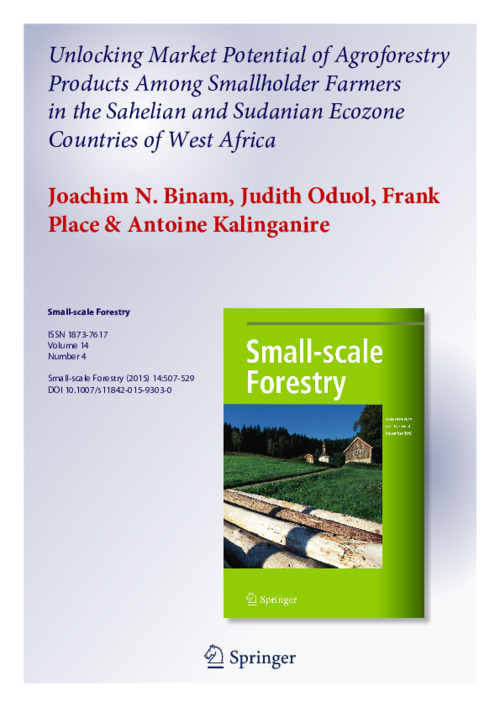Unlocking Market Potential of Agroforestry Products Among Smallholder Farmers in the Sahelian and Sudanian Ecozone Countries of West Africa
Abstract
In the Sahelian countries, gathering of agroforestry tree products is one
of the few livelihood activities that hold great potential for income generation and
poverty reduction among resource-poor households. This study explores the
determinants of market participation and selling decisions, which are key prerequisites
for sustainable intensification and commercialization of the rural economy. A
commercialized economy provides invaluable opportunities for smallholder farmers
to increase their income and escape from poverty traps that are faced by most rural
households in the Sahel. The results from a cross-sectional sample of 1080
households drawn from four Sahelian countries, namely Mali, Niger, Burkina Faso
and Senegal, lend support to the relevance of three sets of variables in explaining
agroforestry farmers’ participation in markets and selling decisions. Market participation
and selling decisions are affected by predisposing, facilitating and reinforcing
factors. In areas where markets for tree products are functioning well, long
distances from the main markets do not deter agroforestry farmers from participating
in markets and selling decisions. This demonstrates that other interventions
to strengthen value chains and market integration can be successful even where
transportation is more costly

